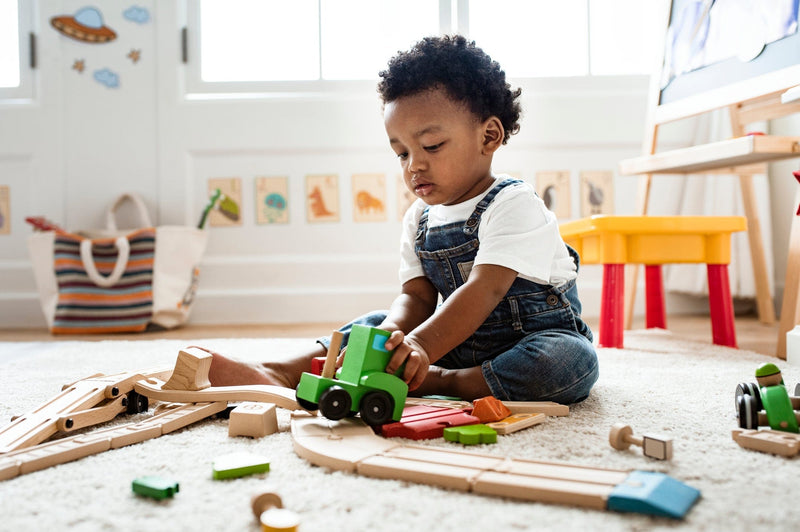What to Expect in the First Trimester of Pregnancy
Written by Connor Bringas on December 29, 2022.
Pregnancy brings many changes, from body and hormone shifts to the impending arrival of a new baby. Many women, especially first-timers, are caught off guard by what the different stages of pregnancy entail—but being informed about the start of this journey can make things less overwhelming.
This blog will focus on what to expect in the first trimester and how to navigate this initial stage. Ready to learn more about those first three months? Let’s dive in.
Table of Contents
- How Long is the First Trimester?
- What to Expect in the First Trimester
- First Trimester Symptoms
- Body changes
- Emotional changes
- Other Things to Consider During the First Trimester
- Prenatal care
- Baby growth
- Planning and preparation
- What Are the Other Stages of Pregnancy?
How Long is the First Trimester?
The first trimester spans from the first day of your last period until the end of the 13th week of pregnancy. This might seem odd, but that’s just how it’s calculated—the first two weeks of your cycle leading up to ovulation count as part of your pregnancy. This means you’re not actually pregnant for the first two weeks of your first trimester.
What to Expect in the First Trimester
This stage marks the start of fetal development. The first two weeks of pregnancy are just your regular menstrual cycle doing its thing. Week one is your period, and week two is all about ovulation.
During ovulation, your egg travels through the fallopian tube to your uterus. If it meets up with sperm along the way, congratulations—conception (fertilization) happens, and the real fun begins.
By the third week of pregnancy, things are starting to get real. The fertilized egg makes its journey to your uterus, dividing into more cells along the way. Once it gets there, your body gets the memo: you’re pregnant. This triggers a cascade of changes, from hormonal shifts to those telltale signs after missing your period.
This Cleveland Clinic page provides a more detailed, week-by-week timeline of this and what to expect in the first trimester.
First Trimester Symptoms
The first trimester is a whirlwind of surprises, even for veteran moms. From physical changes to emotional swings, getting a handle on what to expect with first trimester symptoms can make riding this rollercoaster a bit smoother.
Body changes
You might wonder what to expect in terms of body changes during pregnancy, especially at the start. In addition to your clothes starting to feel a little more snug, the first trimester can come with a lot of adjustments. You might start to experience fatigue, nausea, food cravings, tender breasts, and more. Hormonal shifts can make your breasts sensitive, while morning sickness might drift into lunchtime, afternoon, or any other time of the day. You might experience an increase in bathroom trips, too.
Emotional changes
Pregnancy, especially your first, can stir up lots of emotions. You might feel excited, anxious, thrilled, and exhausted—all at the same time. It's completely normal to worry about your baby's health, the upcoming changes to your life, and the financial aspects of raising a child. And thanks to those fluctuating hormones, mood swings are par for the course.
For soon-to-be Moms trying to manage stress and other emotions during pregnancy, it might help to lean on your loved ones for support. Don’t hesitate to contact a healthcare professional if your mood swings become intense or last longer than two weeks. Understanding how to navigate these emotions during pregnancy can help you maintain your well-being. You can learn more about managing stress during pregnancy in our blog, ‘How to Deal with Stress While Pregnant.’
Other Things to Consider During the First Trimester
The first trimester is more than just navigating emotions and body changes during pregnancy. Other key factors, including those listed below, can set the stage for all of the other stages of pregnancy.
Prenatal care
As soon as you find out you’re expecting, it’ll be important to establish prenatal care with your healthcare provider.
Your first checkup will likely consist of assessing your overall health, identifying any risk factors, and finding out your due date. This is also the time when you might change your diet, start taking supplements, or cut out anything that pregnant women aren’t allowed to eat or drink. You might want to use this checkup to ask any questions about your pregnancy, including first trimester symptoms and what to expect during pregnancy altogether. Regular checkups will keep you in the know and reassured.
Baby growth
While there are many body changes during pregnancy, you may not 'show' much during the early stages. That said, a lot is still happening behind the scenes. In these first few months, some of your baby’s crucial structures and organs should begin to take shape. The placenta, amniotic sac, and umbilical cord will start to form. By weeks five to eight, major organs like the lungs and heart are starting to develop, too!
By the end of the first trimester, your baby, now about the size of a plum, has developed fingers, toes, and even tiny nails. The brain, spinal cord, and other vital systems are well underway, too, setting the foundation for the coming months.
Planning and preparation
The first trimester is your golden opportunity to start planning and prepping for your baby’s arrival. Here’s your go-to list for getting ready during this crucial stage:
Book your first prenatal appointment: This is when you can establish care, get your due date, review your health, and talk about your delivery preferences. Bring all your burning questions about pregnancy, what to expect during pregnancy, and how to prepare for your little one’s arrival.
Make some lifestyle tweaks: Next, think about your diet, exercise, and sleep. Adjusting these could make a big difference in your overall well-being. Chat with your doctor about how to keep things balanced and safe for both you and your baby.
Join support groups to connect with other parents-to-be: Joining support groups for new and expectant mothers can be a game-changer. They can offer friendship and support, connecting you with others who are navigating the same journey.
Start looking at baby stuff: Many future parents wait until their first trimester is over to properly start shopping for baby products, but exactly when you start shopping for baby is completely up to you. Even if you don’t want to buy anything just yet, it’s useful to browse the types of products out there that will make your life easier when the baby comes.
For example, products like the Tushbaby Hip Carrier and Snug attachment are the ultimate duo for effortless, stylish babywearing. Tushbaby is a carrier that supports your body, your stuff, and your kids from 0-3 years old. It fits newborns to 36 months (up to 45 lbs) and features four carry positions, five storage pockets, and a hideable bottle holder. Plus, it’s stain-resistant, easy to clean, and weighs under 1 lb—and did we mention it can double as a nursing pillow?
For added convenience, The Snug attachment provides hands-free carrying for babies 12-45lbs. Designed exclusively for use with the Tushbaby Hip Carrier, The Snug allows you to carry them face-to-face or forward-facing with the added storage and support of your Tushbaby. When you want to change up how you carry, The Snug easily folds up to store in Tushbaby’s under-seat pocket.
What Are the Other Stages of Pregnancy?
After the first trimester, there are two more to go! During each stage, you’ll have different symptoms to contend with, different things to prepare for, and different types of fruit to use as a size comparison for your growing baby.
The body changes during pregnancy don’t stop at the first trimester. After this initial stage, you’ve still got that second-trimester pregnancy glow to look forward to, as well as more belly growth—and some other, maybe not-so-welcome changes. You can find out more about the symptoms for this next phase and how to prepare with our Second Trimester Checklist.
Then comes the final stretch of your pregnancy—the third trimester. At this point, it’s time to ensure things are ready for when your baby enters the world. This will include tasks like setting up the crib and making sure you have all the essentials—including a car seat, a baby carrier, diaper bag, changing pad, and a fully stocked hospital/delivery bag. Unsure of what to pack in your hospital bag? Read our blog for ‘What to Pack in a Hospital Bag for Labor & Delivery,’ where we dive into what your family and baby will need during this exciting time.
The first trimester is a flurry of changes, both physically and emotionally. From the early signs of pregnancy to the crucial steps in planning and preparing, knowing what to expect can make this journey smoother and more enjoyable. During these different stages of pregnancy, embrace the changes, lean on your support network, and take things one step at a time. The more informed and prepared you are, the more confident you'll feel as you navigate this exciting new chapter. Here's to a healthy pregnancy journey!
Expecting? Get prepared with all Tushbaby must-haves. Shop now!








Leave a comment